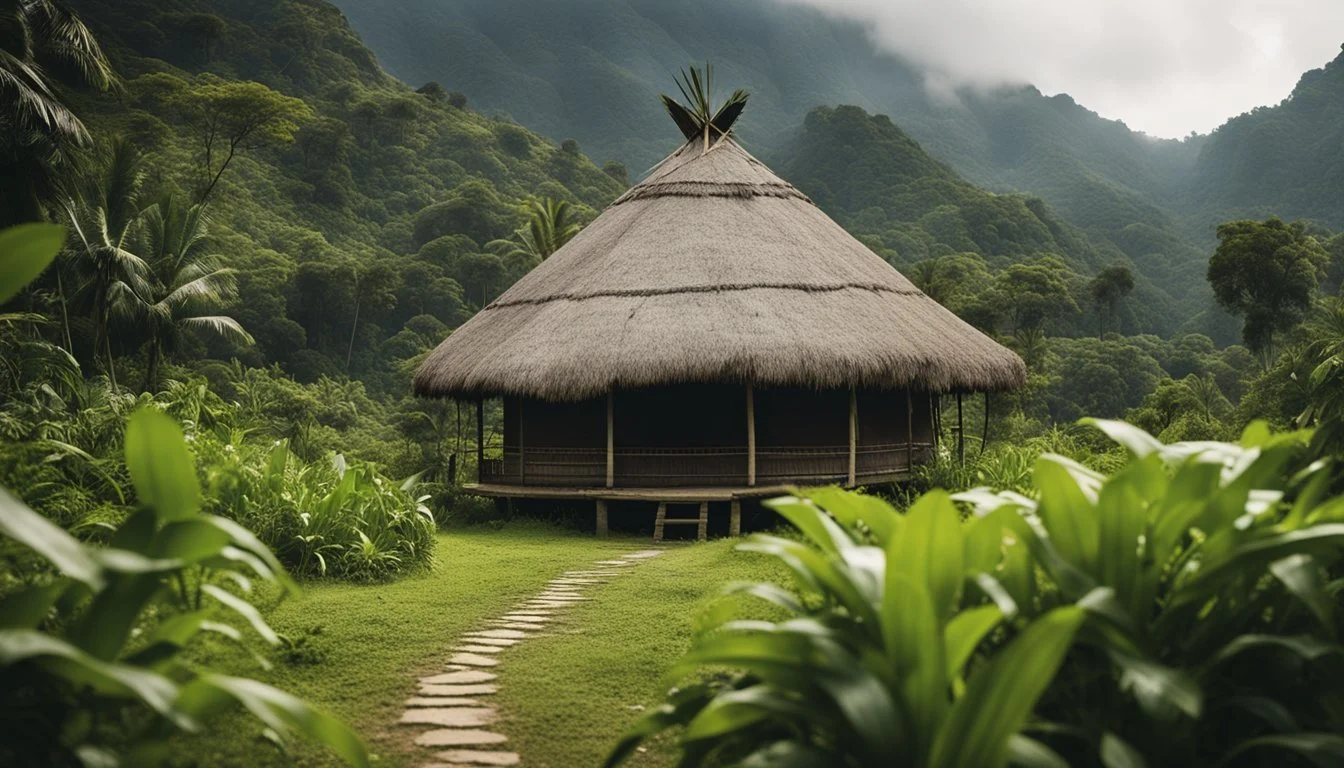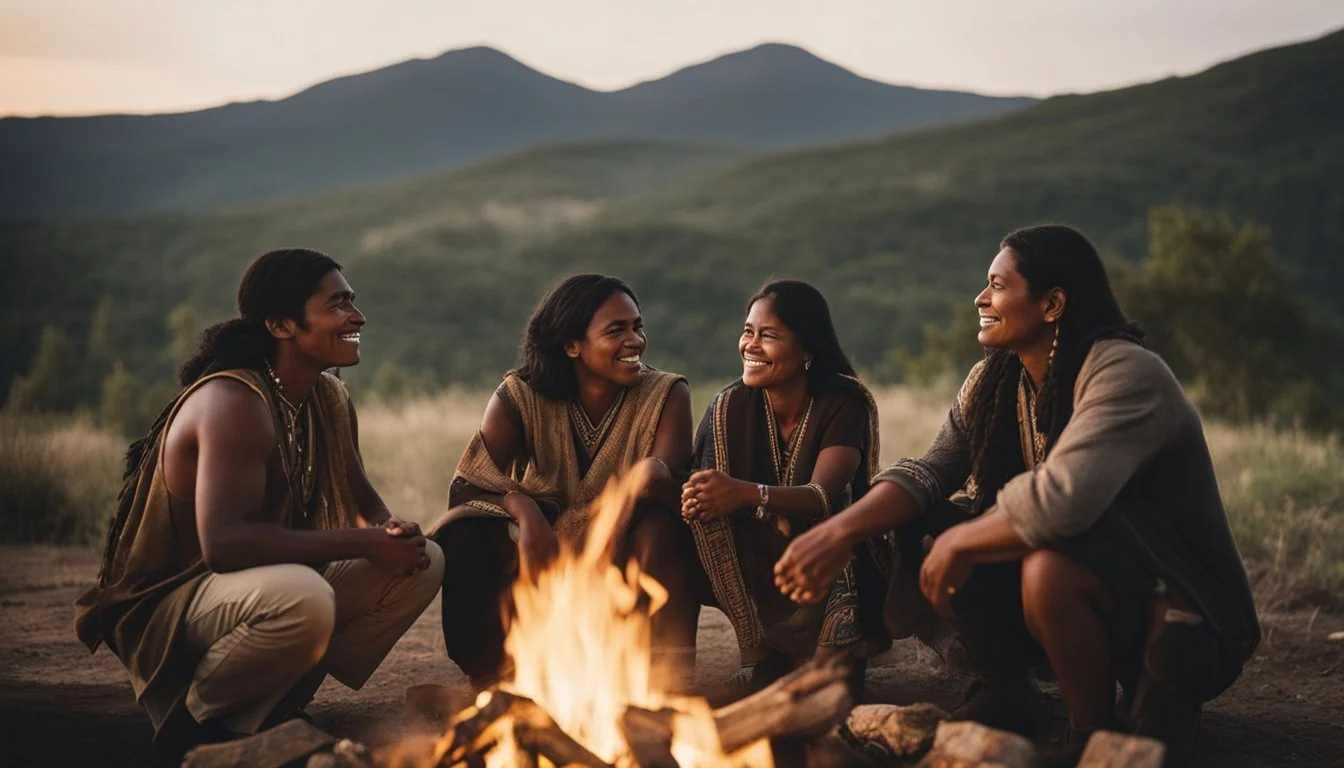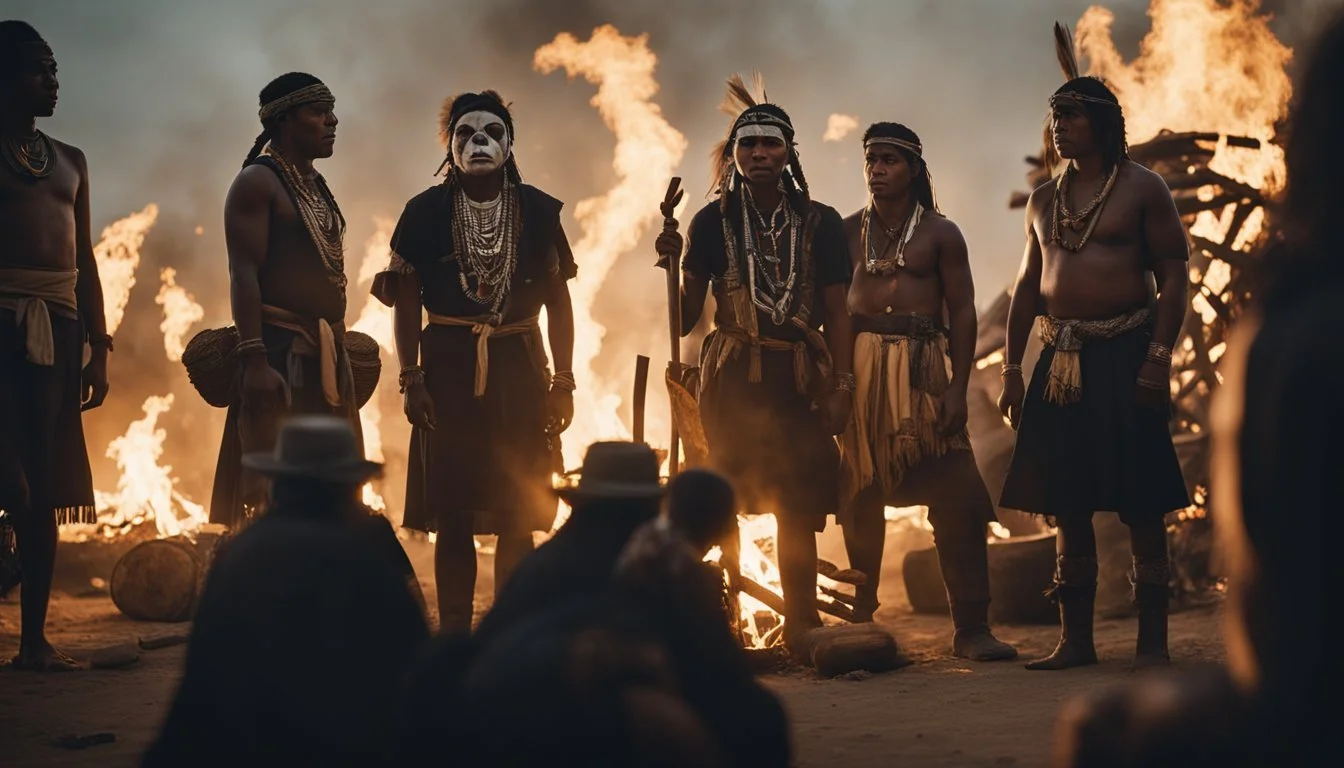6 True Crime Documentaries About Indigenous Peoples
Unveiling Harrowing Stories
True crime documentaries about indigenous peoples shed light on the often overlooked and deeply troubling issues faced by these communities. These films explore stories ranging from missing and murdered individuals to the fight against illegal practices that threaten their way of life. By highlighting these cases, the documentaries aim to give a voice to those whose stories have not been heard and bring attention to systemic problems that persist.
For viewers seeking to gain a deeper awareness of these critical issues, these documentaries serve as a compelling and informative resource. They paint a vivid picture of the resilience and strength of indigenous communities, while also exposing the injustices they endure. These films are not just about crime; they are also about the struggle for justice and recognition.
1) 'Big Crow: Voices From the Heart' by Michael Anderson (2022)
'Big Crow: Voices From the Heart' by Michael Anderson revolves around the inspiring life of SuAnne Big Crow, a young Lakota basketball player.
SuAnne Big Crow was a prominent figure in the Pine Ridge Indian Reservation.
She used her basketball talent to battle pervasive issues such as racism, violence, and substance abuse.
One of her major achievements was leading her high school team to their first-ever class A girls state basketball championship in 1989.
Anderson's documentary highlights not only her sports prowess but also her role as an activist.
SuAnne Big Crow’s efforts extended beyond the court.
She became a symbol of hope and strength for her community.
Her tragic death in 1992 at the age of 17 brought an early end to her promising future but not to her enduring legacy.
This film serves as both a tribute and a critical reminder of the ongoing struggles faced by Indigenous peoples in the United States.
For more information, you can visit Wikipedia.
2) 'Still Here: The Untold Stories' by Jessica Martinez (2023)
This documentary delves into the stories of Indigenous communities in North America. Directed by Jessica Martinez, it sheds light on their struggles, resilience, and cultural heritage.
The film captures interviews with Indigenous elders, activists, and young leaders. They share personal accounts of historical injustices, land conflicts, and ongoing battles for recognition.
Through powerful storytelling, 'Still Here: The Untold Stories' emphasizes the importance of preserving Indigenous languages, traditions, and practices. It highlights both the challenges faced and the enduring spirit that continues to drive these communities.
Learn more about 'Still Here: The Untold Stories'.
3) 'Eagle's Shadow: A True Crime Mystery' by David Stone (2020)
This documentary, directed by David Stone, explores the complex and gripping story of a crime involving Indigenous peoples.
Set against a backdrop of historical injustices, 'Eagle's Shadow' dives into the mysterious disappearance of an Indigenous community leader. It underscores the ongoing struggles faced by Native communities related to law enforcement and legal equity.
The film emphasizes the cultural context, detailing how traditional practices and beliefs play into the investigation. Expert interviews and community voices provide a deeper look into how Indigenous customs intersect with modern crime-solving techniques.
'Eagle's Shadow' also highlights systemic failures and the perseverance of the community in seeking justice. It paints a clear picture of resilience and advocacy within the Indigenous population.
For more details, visit the film's IMDb page.
4) 'The Silent Witnesses: Indigenous Women' by Laura White (2021)
'The Silent Witnesses: Indigenous Women' by Laura White is a gripping documentary that brings attention to the plight of missing and murdered Indigenous women in North America.
This 2021 film delves into the devastating impact these crimes have on families and communities.
The narrative is driven by personal stories from the relatives of victims, along with experts and activists who have dedicated their lives to seeking justice.
Laura White presents a harrowing yet essential chronicle of systemic failures that contribute to the crisis.
Through intimate interviews and thorough research, the documentary lays bare the negligence and indifference often displayed by authorities.
The film also highlights grassroots efforts to raise awareness and push for changes in policy and law enforcement.
Powerful visual storytelling complements the compelling narratives, ensuring that the voices of those affected are neither silenced nor ignored.
5) 'Sacred Grounds: The Unseen Crimes' by Jordan Black (2020)
'Sacred Grounds: The Unseen Crimes' by Jordan Black (2020) uncovers crimes against Indigenous peoples, focusing on the impact of illegal land seizures.
The documentary reveals untold stories of indigenous communities facing displacement and violence. Jordan Black's investigative work brings these injustices to light, providing a voice to those often unheard.
The film features interviews with indigenous leaders, victims, and historians. It emphasizes the historical context and ongoing struggles of these communities.
Beautifully shot landscapes contrast the harsh realities faced by the people living there. This visual juxtaposition underscores the importance of protecting both the land and its inhabitants.
'Sacred Grounds: The Unseen Crimes' has been praised for its thorough research and respectful storytelling.
For more information, visit IMDB.
6) 'Peace and Conflict: Real Crime Cases' by Anna Grey (2022)
Anna Grey's 'Peace and Conflict: Real Crime Cases' is a compelling documentary that delves into criminal cases involving Indigenous communities. This 2022 film provides a meticulous examination of complex cases that emphasize the experiences and challenges Indigenous peoples face within the justice system.
The documentary features in-depth interviews with victims' families, community leaders, and legal experts. These narratives highlight the systemic issues and cultural misunderstandings that often arise in criminal investigations involving Indigenous individuals.
Grey's approach is both sensitive and thorough, ensuring that the voices of Indigenous communities are heard and respected. The documentary not only presents the crimes but also explores the broader social and political context that affects these communities.
Digital archives and historical footage are employed to provide background and depth to the stories. This method helps to connect past injustices with current events, offering viewers a comprehensive understanding of the ongoing struggles for justice and recognition.
'Peace and Conflict: Real Crime Cases' is a crucial resource for anyone interested in true crime and Indigenous issues. Its careful portrayal of real-life cases makes it a poignant and educational watch.
Historical Context of Indigenous Peoples in Crime Documentaries
The portrayal of Indigenous peoples in crime documentaries often reflects the broader historical and socio-political contexts. These documentaries examine the impacts of colonialism and the role of media advocacy in bringing Indigenous issues to light.
Colonialism and Its Impact
Colonialism had profound and lasting effects on Indigenous communities. It disrupted traditional ways of life, imposed new governance structures, and led to widespread displacement and cultural disintegration.
This historical context is essential for understanding the systemic issues depicted in true crime documentaries involving Indigenous peoples. These films often highlight how historical injustices have contributed to contemporary problems such as poverty, substance abuse, and legal inequalities.
The portrayal of these issues underscores the continuing impact of colonial policies and practices.
Indigenous Advocacy Through Media
Media has become a powerful tool for Indigenous advocacy. Documentaries serve as platforms for raising awareness and fostering dialogue about ongoing injustices faced by Indigenous communities.
By telling stories from Indigenous perspectives, filmmakers challenge mainstream narratives and highlight resilience and agency within these communities.
Films like "Taken" and "True Story" not only document crimes but also emphasize the voices of victims' families and activists. This approach ensures that Indigenous experiences are accurately represented and that their struggles for justice are widely acknowledged and understood.
Common Themes in Indigenous True Crime Documentaries
These documentaries often highlight significant issues faced by Indigenous peoples, including the ongoing struggles for justice and the efforts to preserve and celebrate cultural identity amid adversity.
Systemic Injustices and Legal Battles
Indigenous true crime documentaries frequently emphasize the systemic injustices encountered by Indigenous communities. These include discriminatory practices within legal systems and law enforcement's historical negligence or misconduct. Many films depict the challenges families face in getting their cases taken seriously, often contrasted with cases involving non-Indigenous victims.
This theme is central in works like "Gone Without Trace" and "If I Go Missing," where systemic biases contribute to the suffering and long waits for justice. Documentaries also explore legal battles fought by Indigenous activists and communities to address these abuses and seek reforms within the justice system.
Cultural Resilience and Representation
Another dominant theme is the portrayal of cultural resilience. Documentaries often showcase the strength and perseverance of Indigenous communities in the face of adversity. These stories are not just about victimization; they highlight the cultural practices, traditions, and rituals that sustain communities and offer hope.
Films like "True Detective: Night Country" and various works cited by KAIROS Canada portray Indigenous characters not merely as victims but as multi-dimensional individuals. The depiction of cultural practices, rituals, and the role of community support systems provides a richer, fuller narrative that underscores the enduring spirit and resilience of Indigenous peoples.
Impact of True Crime Documentaries on Indigenous Communities
True crime documentaries about Indigenous peoples often have a dual impact, increasing awareness and advocacy for justice while also affecting mental health and contributing to healing processes within these communities.
Awareness and Advocacy
True crime documentaries serve as crucial tools in raising awareness about injustices faced by Indigenous communities. They highlight systemic issues such as forced assimilation, discrimination, and violence. These films bring marginalized stories to a global audience, thereby fostering understanding and promoting advocacy for Indigenous rights.
Documentaries like those directed by Robin Davey and Yellow Thunder Woman expose historical and contemporary struggles. Through powerful storytelling, the enduring impact of colonial violence and systemic inequalities is laid bare. This often leads to increased visibility of Indigenous issues in public discourse and can encourage policy changes or support initiatives led by Indigenous activists.
Mental Health and Healing
While these documentaries can be illuminating, they also have a significant impact on the mental health of Indigenous viewers. Revisiting traumatic experiences through media representation can act as a double-edged sword. On one hand, seeing their stories acknowledged validates the experiences of Indigenous peoples. This acknowledgment is vital for individual and collective healing.
On the other hand, exposure to these narratives can be distressing and retraumatizing. It requires a careful balance of telling these difficult stories while providing support for those affected. Community screenings often incorporate discussions or cultural rituals as part of the healing process, ensuring that audiences are not left unsupported.
These documentaries offer important contributions to raising awareness and aiding in the healing of Indigenous communities, despite their present challenges.








